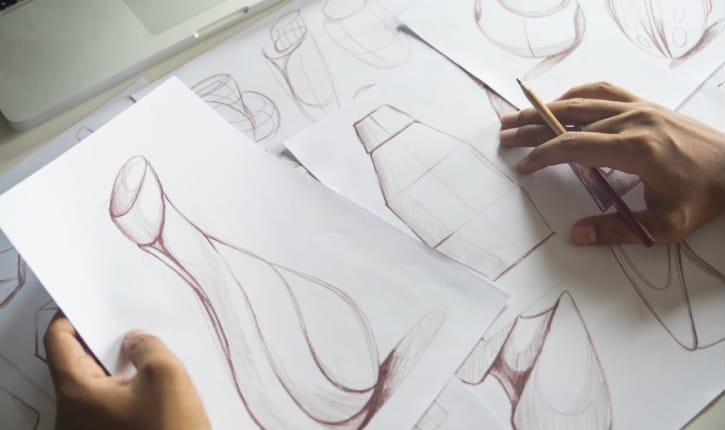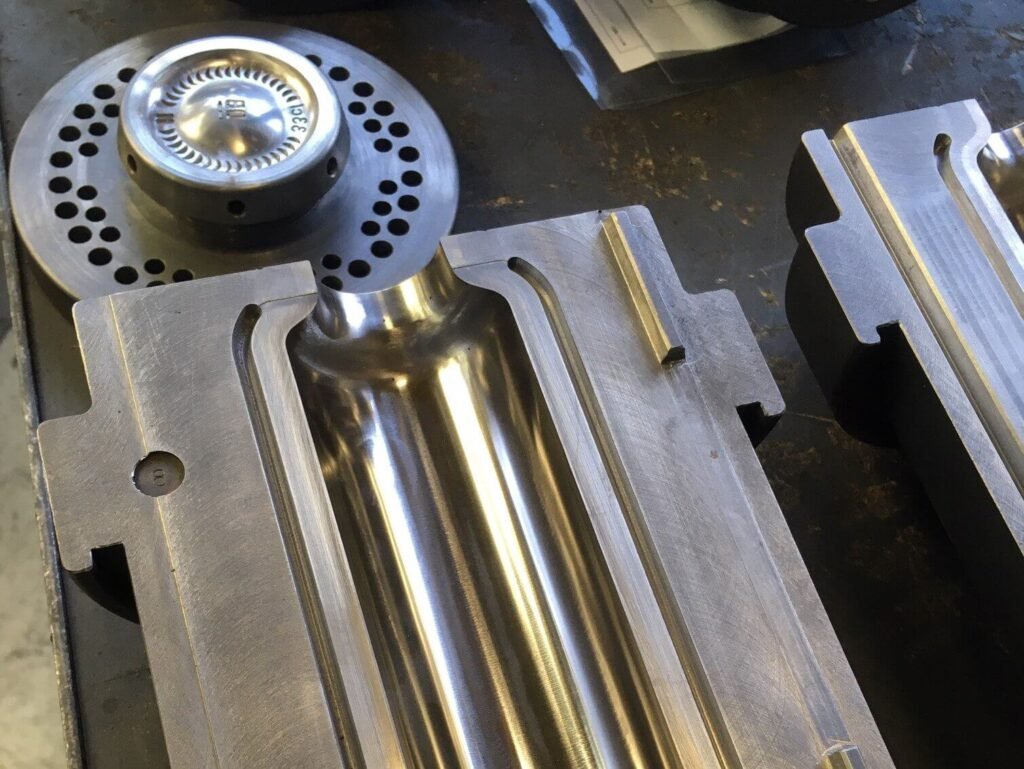In the production of glass bottles, especially wine bottles, the quality and characteristics of the molds are crucial. They directly affect the quality, durability, and production efficiency of the finished products. Below are several key aspects and requirements for glass bottle molds in production, along with our company’s advanced handling methods to showcase our technological advantages and stringent standards.

- High-Strength Molds The strength of the mold is the foundation of its performance. High strength ensures that the mold can withstand high temperatures and pressures during the production process. However, strength alone is not enough; it is also essential to analyze the microstructure and crystalline phases of the mold material to ensure its durability and stability during production.Our Advantage:
- Material Selection The choice of mold material directly impacts its lifespan and precision. High-quality materials ensure that molds maintain their shape and performance in high-temperature and high-pressure environments, reducing replacement frequency and lowering production costs.Our Advantage:
- High-Temperature Resistant Materials: We use specially developed high-temperature alloys capable of withstanding extreme temperatures and frequent thermal cycles without deforming. When molten glass at 1300°C is poured into the mold, our special material absorbs heat evenly and cools quickly. Inferior mold materials can result in defective bottles due to slow cooling or sticking to the mold, which affects output and delivery times.
- Corrosion-Resistant Coating Technology: Molds that are in contact with molten glass for extended periods are prone to oxidation and corrosion. To improve mold lifespan and save production costs, we apply a professional corrosion-resistant coating to the mold surface, significantly extending the mold’s life and helping clients reduce costs and delivery times.
- Eco-friendly Materials: All our mold materials comply with international environmental standards, reducing the environmental impact of production while ensuring product safety. Even after producing millions of bottles, our molds are professionally recycled, fully realizing material reuse and greatly reducing costs for both us and our clients. This is an effective way we help customers reduce their glass bottle procurement costs.
- Excellent Processing Characteristics Mold materials must have excellent processing properties and welding characteristics, maintaining precision during manufacture and enduring the challenges of high temperatures during production. The materials should also possess resistance to thermal shock, oxidation, and fatigue.Our Advantage:
- Precision Processing Equipment: We have introduced internationally leading five-axis CNC machines, ensuring that every detail of the mold meets design requirements with an error tolerance of 0.1 millimeters.
- Multi-layer Welding Technology: We use multi-layer high-temperature welding processes to ensure that the welded areas of the mold maintain the same strength and durability as the rest of the mold.
- High-Temperature Treatment: After mold processing, we carry out multiple thermal cycling treatments to further enhance the mold’s resistance to thermal shock and fatigue.
- Wear Resistance and Stability When molds are used at high temperatures, they must have exceptional wear resistance and dimensional stability to ensure that the mold retains its shape over extended production periods, thus guaranteeing consistent product quality.Our Advantage:
- Wear-Resistant Coating Treatment: We apply nanometer-level wear-resistant coating technology to the mold surfaces, reducing friction and wear, and extending the mold’s lifespan.
- More Detailed Mold Maintenance: During bottle production, we assign dedicated workers to carefully maintain the molds. After producing a certain number of bottles, our workers apply special oils to the molds for maintenance, which helps extend the mold’s life and improve bottle quality.
- Long-Life Mold Design: Each mold is subjected to service life simulation tests to ensure that it can maintain stable operation in a high-intensity production environment for over 1 million cycles.
- Stable Temperature Control System: We design intelligent temperature control systems inside the molds to adjust the temperature distribution on the mold surface in real time, preventing dimensional changes caused by temperature differences.
- Appropriate Friction Resistance and Non-Stick Properties Molds must have excellent friction resistance and non-stick properties when working at high temperatures to prevent molten glass from adhering to the mold surface, thus affecting the demolding efficiency and product quality.Our Advantage:
- Super-Slippery Coating Technology: We use nanometer-level super-slippery coatings to reduce the friction between molten glass and the mold, ensuring smoother demolding.
- Automatic Release Agent Spraying System: We have automated release agent spraying equipment on the production line, which intelligently sprays according to the production pace, ensuring smooth demolding processes every time.
- High-Temperature Non-Stick Treatment: We apply high-temperature non-stick treatments to the mold surface, preventing any adhesion even at temperatures exceeding 1200°C.
- Thermal Conductivity Considerations The thermal conductivity of the mold material directly affects the quality of glass cooling. Mold thickness, cooling methods, and heat transfer capabilities need to be carefully designed to ensure the glass cools evenly without cracking or other defects.Our Advantage:
- Optimized Thermal Conductivity Design: We use simulation software to analyze the thermal conductivity of molds, optimizing mold thickness and cooling channel designs for more uniform cooling.
- Efficient Cooling System: We use a combination of rapid water cooling and air cooling technologies to significantly reduce cooling time and improve production efficiency.
- Real-Time Temperature Monitoring: Equipped with thermal imaging monitoring systems, we can track temperature changes on the mold surface in real-time and adjust cooling strategies promptly to prevent quality issues caused by overcooling or overheating.

Conclusion The selection and design of molds are crucial in glass bottle manufacturing, as they are key to ensuring product quality and production efficiency. Our company, with its advanced technological equipment, strict quality control systems, and innovative production processes, is at the forefront of the industry in mold research and application. By focusing on the strength, high-quality materials, processing properties, wear resistance, non-stick properties, and thermal conductivity of molds, we not only meet the diverse needs of our customers but also continuously enhance production efficiency and product quality, creating greater value for our clients.

